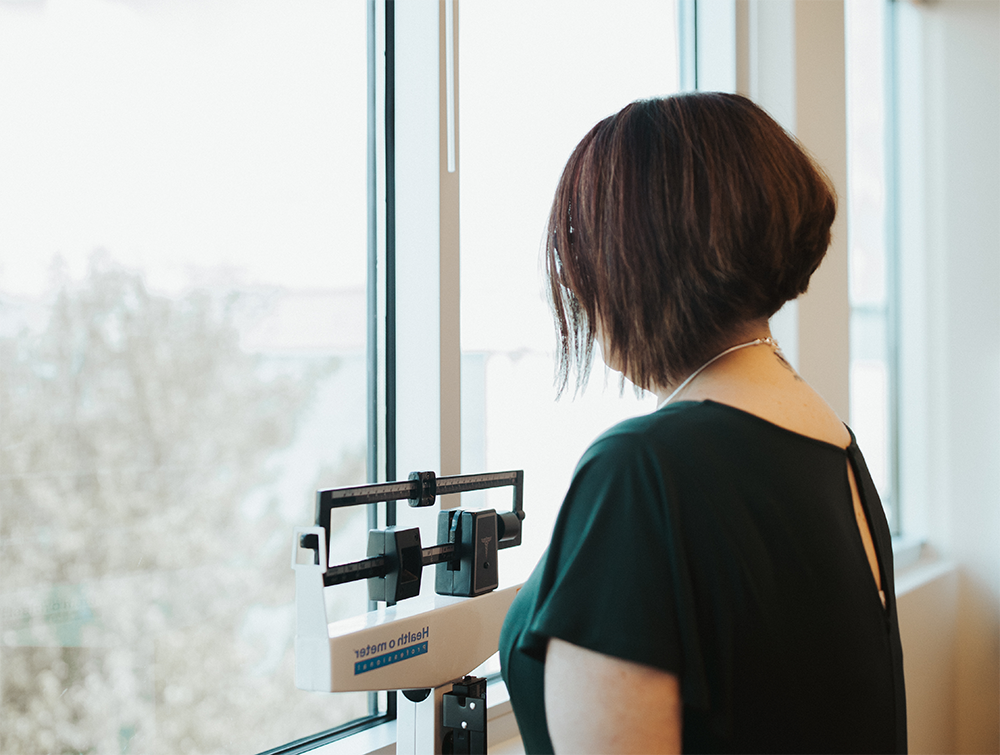
In the months following weight loss surgery, it is very common to notice rapid and consistent weight loss. This is due to the caloric restriction as a result of each weight loss procedure. However, there will come a time when weight loss may seem to slow down or even stop. And I’m not talking about once you have hit a healthy goal weight.
Many patients have experienced a time in their weight loss journey when the number on the scale just won’t budge no matter how hard you seem to try. This can be extremely frustrating especially when you know you have a few more pounds to lose.
It is hard to definitively say what causes a weight plateau. It may be that you now have a lower metabolism as a result of a loss of muscle mass. Or it could be as simple as not eating the appropriate foods.
Regardless of the cause, there are ways to overcome this weight plateau and finally begin to see the number on the scale go down.
The best way to overcome a weight plateau is to begin keeping a food and exercise journal. Have you ever heard the phrase “my eyes are bigger than my stomach”? Well this is true for a lot of our patients.
A few months after surgery, you may begin to get lazy about accurately measuring your food. Therefore, you unintentionally begin eating larger portions. I recommend keeping a food journal, to ensure you are adhering to the appropriate amount of calories and macros.
The Baritastic app is a great mobile app that is built specifically for bariatric patients. Otherwise, I recommend using MyFitnessPal to log both food and exercise goals.
Remember, the answer is NOT to cut calories and increase exercise. Yes, this will make you lose weight fast, but it will also put your body is shock and do more harm than good.
When keeping your food and exercise journal, it is also important to do weigh-ins to figure out if counting calories and macros is actually working for you. I recommended doing weekly assessments, where you weigh in and also evaluate what you have been eating.
Hopefully you will begin noticing you weight go down. If not, I suggest reevaluating what you have been eating, especially checking on those carbs and protein. Try to adhere to the guidelines our practice has given you in regards to serving sizes and macros.
Overtime, you will become more comfortable with eye-balling your portion sizes and will begin to find the perfect mix of macros that work for you based on your activity level. Remember, be patient.
When you feel at a complete lose and nothing is working, you can always call our office to schedule a “back on track” consultation with our registered dietitian, Morgan.










